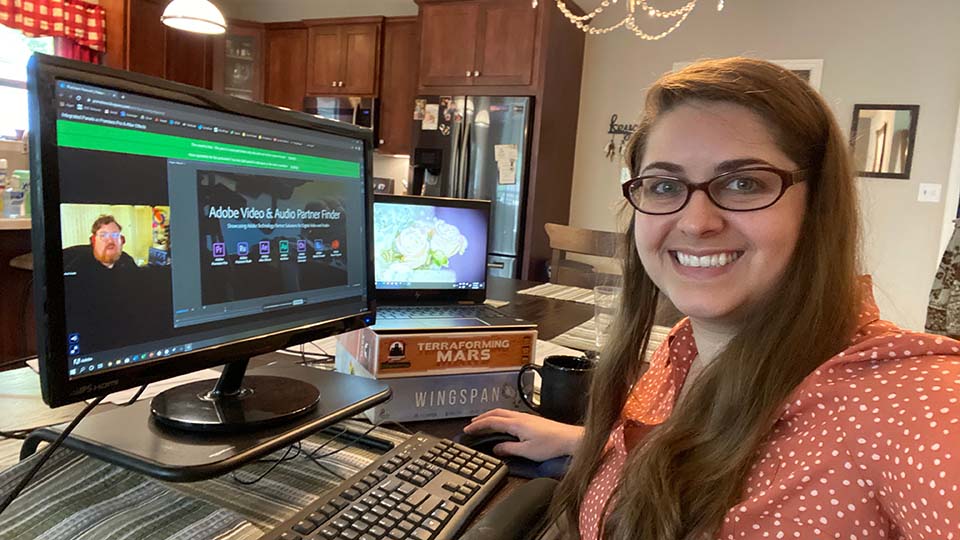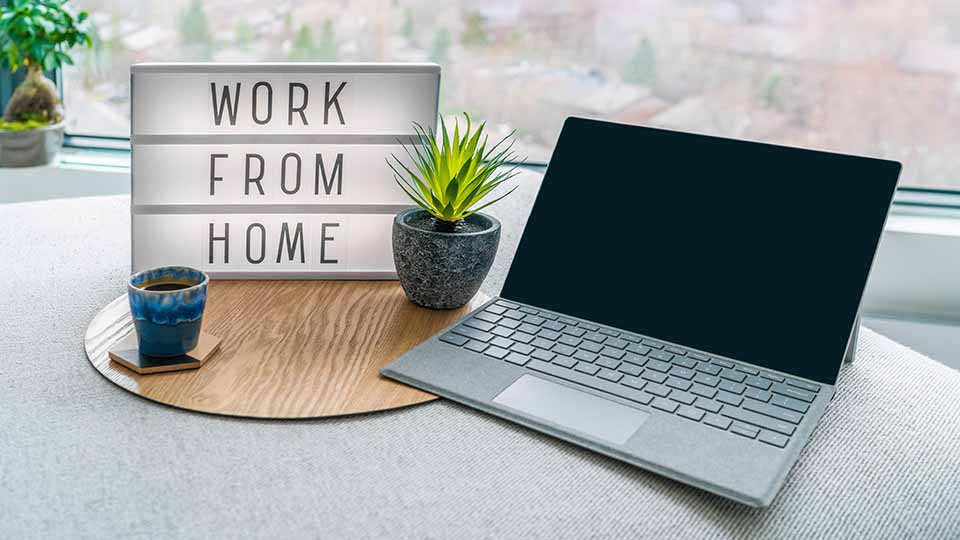
IWD 2024: Can we stop calling it 'remote work' already?
I've been working from home since 2014.
Back then, it was a pretty big deal to work remotely. A privilege my previous employer reserved for the corporate upper echelons—directors and VPs who had enough clout to negotiate a work-from-home lifestyle into their benefits package.
And then there was me: a young marketer with none of the pedigree who longed for a reprieve from the relentless Arizona heat.

Before I started working from home, I worked at this charming office building in Tempe, AZ, for a previous employer.
Transitioning to a home office
After an in-depth (and wildly unnecessary) PowerPoint presentation about how my relocation was for the company's benefit more than my own, I knew I had to make remote working work. So, I put extensive effort into my relocation plans.
First, I interviewed my remote colleagues to see what helped them transition from working in an office to working from home. (Shout-out to the guy who said his wife brings him a sandwich every day for lunch. She's the real hero.)
Then, I shopped around for the best WiFi speeds in my area before my remote job even started. Taking a few days off, I dedicated time to settle in and set up my new home office. I even conducted a trial workday over the weekend to ensure my first day working from home would go as planned. (I wear my overachiever badge with pride, thank you very much.)
All this is to say, when I started working from home, I cautiously waded in the shallow end with floaties strapped on for safety.

Me, showing off my home office setup.
A new wave of remote workers
None of that was the case in March 2020. I accepted a position at SNS for an in-office position, which, within a matter of weeks, turned remote as the pandemic reached peak pandemonium. This time around was much different than the last.
There were no PowerPoints about the corporate benefits of work-life balance. No time to shop around for better internet speeds. No spare vacation days to dedicate to getting it right. There was barely enough time to grab a notebook and a spare roll of toilet paper from the office before we were pushed down the elevator and out the door.
Everyone was learning to swim in a hurricane, forced off the comfort of a familiar old ship.
Even my own floaties were deflating. I found myself stacking board games on my dining table as a laptop riser when my husband needed to "borrow" my office for important meetings.

Me in my dining room open-concept home office.
From the couch or cubicle, it's all work
But, you know what? That new wave of remote employees born out of necessity during the 2020-2022 pandemic—we still learned to swim. Against all odds and through adversity, we persevered. And now, I think it's time to strip the "remote" qualifier from what we do: work.
Why make it so complicated with "remote this" and "hybrid that?" Working from home—whether full-time, part-time or on occasion—is working. Location is irrelevant.
Case in point: I wrote this blog post in the courthouse, waiting to be called in for jury duty. Could I have taken the day off instead? Yes. Would this article have turned out differently if I were in the office or at home? Probably not (except for this paragraph).
Good workers do good work wherever they are—in the office, at home, or even in a library or coffee shop… As long as you have the right tools for your place of work, that place can be pretty much anywhere.

What the research says
We live in a new paradigm where remote work is no longer considered a privilege for select executives and overachieving underlings. It is a common benefit largely preferred by employers and employees alike.
I found several articles that prove remote work = real work, but Forbes Advisor's Remote Work Statistics And Trends In 2024 summarized it best. Here are a few key takeaways.
- 98% of workers want to work remotely at least some of the time, and about 40% of them do. This percentage is expected to rise in the coming years.
- Men work remotely more often than women, dispelling the myth that women work from home to take care of the kids. (Sure, some might, but so do men!)
- Nearly half of remote workers find it challenging to feel connected with their co-workers, and while this can stifle collaboration, the right tools can bring your team back together. Enter shameless plug for EVO shared storage here.
The truth is: that fully remote workers bring their A-game every day, just like the in-house crew. They meet deadlines and complete projects with the same dedication, regardless of where they're logging in on any given day. So, why the need to label it "remote work" at all?
Let's just call it what it is: Work. No qualifiers are needed.*